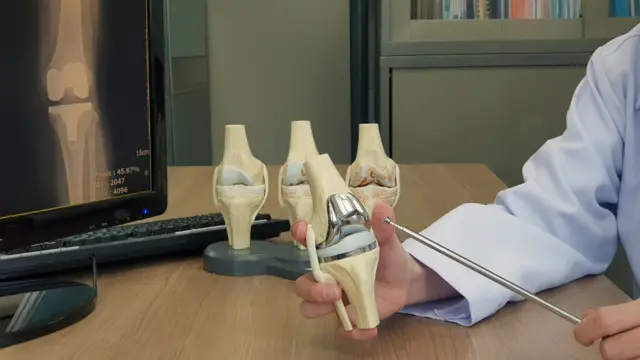Knee replacement surgery, medically known as knee arthroplasty, marks a significant milestone in alleviating pain and restoring mobility for those with severe knee joint issues. However, the journey doesn’t end with the operation; the post-surgery phase is equally crucial. Unfortunately, many individuals inadvertently hinder their recovery by making avoidable mistakes during this vital period. In this article, we’ll delve into five common blunders people make after knee replacement surgery and offer practical solutions to ensure a smoother rehabilitation process.
1. Neglecting Physical Therapy:
Mistake: Underestimating the importance of post-operative physical therapy, some patients may skip sessions, perform exercises incorrectly, or avoid challenging movements altogether.
Solution: Commit to your physical therapy regimen religiously. Regular sessions aid in strengthening knee muscles, improving flexibility, and enhancing joint function. Follow your therapist’s guidance diligently and communicate any concerns promptly.
2. Ignoring Pain Management:
Mistake: Some individuals endure pain unnecessarily, believing it’s an inevitable aspect of recovery. They may shun pain medications or delay seeking help when discomfort becomes unbearable.
Solution: Prioritize effective pain management in your recovery plan. Consult your surgeon for suitable pain relief options. Strike a balance between pain control and mobility, avoiding excessive reliance on painkillers while ensuring adequate relief for smoother recovery.
3. Neglecting Wound Care:
Mistake: Inadequate attention to surgical incision care can lead to infections or delayed healing. Ignoring signs like redness, swelling, or drainage from the wound is a common oversight.
Solution: Adhere meticulously to your surgeon’s wound care instructions. Keep the incision clean, dry, and protected, promptly reporting any signs of infection or unusual symptoms.
4. Overdoing Activities Too Soon:
Mistake: Eagerness to resume normal activities may lead to overexertion, risking strain on healing tissues and jeopardizing surgical outcomes.
Solution: Gradually ease back into activities as advised by your healthcare team. Avoid high-impact exercises or heavy lifting until receiving clearance. Listen to your body’s signals and prioritize rest when necessary.
5. Neglecting Lifestyle Modifications:
Mistake: Some patients revert to unhealthy habits post-surgery, such as smoking, poor nutrition, or excessive alcohol consumption, hindering healing and long-term results.
Solution: Embrace a holistic approach to recovery by adopting a healthy lifestyle. Quit smoking, prioritize a balanced diet rich in nutrients, and moderate alcohol intake. Ensure adequate hydration and prioritize quality sleep to support optimal recovery.
Conclusion:
Knee replacement surgery signifies a transformative journey toward a pain-free and mobile future. However, it demands active participation and adherence to post-operative guidelines. By avoiding these common blunders, staying informed, and collaborating closely with your medical team, you can maximize the success of your knee replacement surgery and embark on a journey to improved quality of life.



